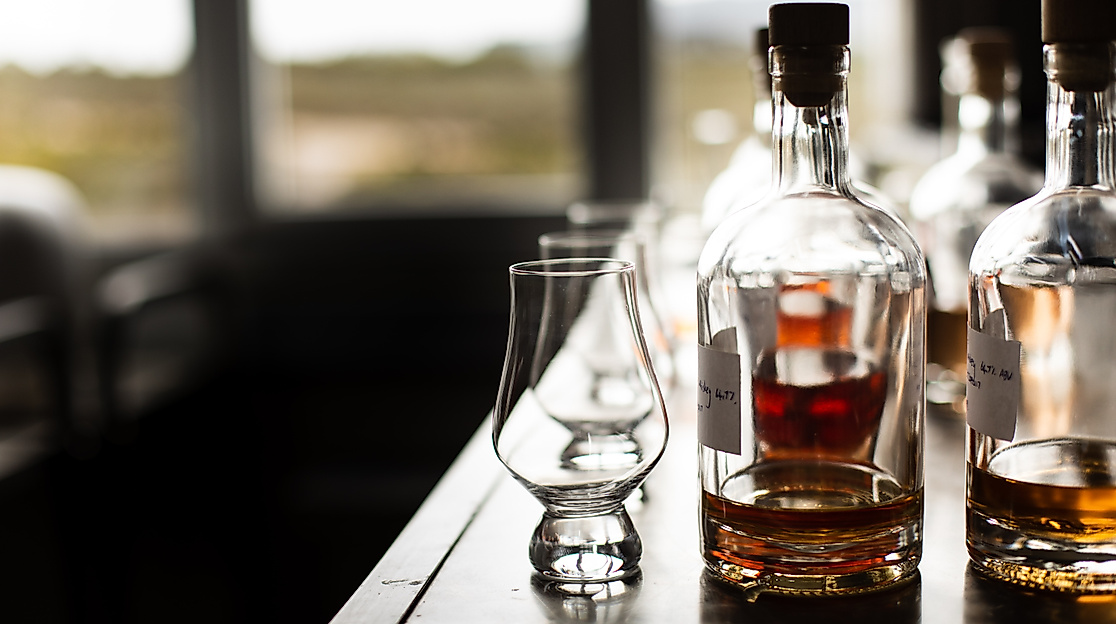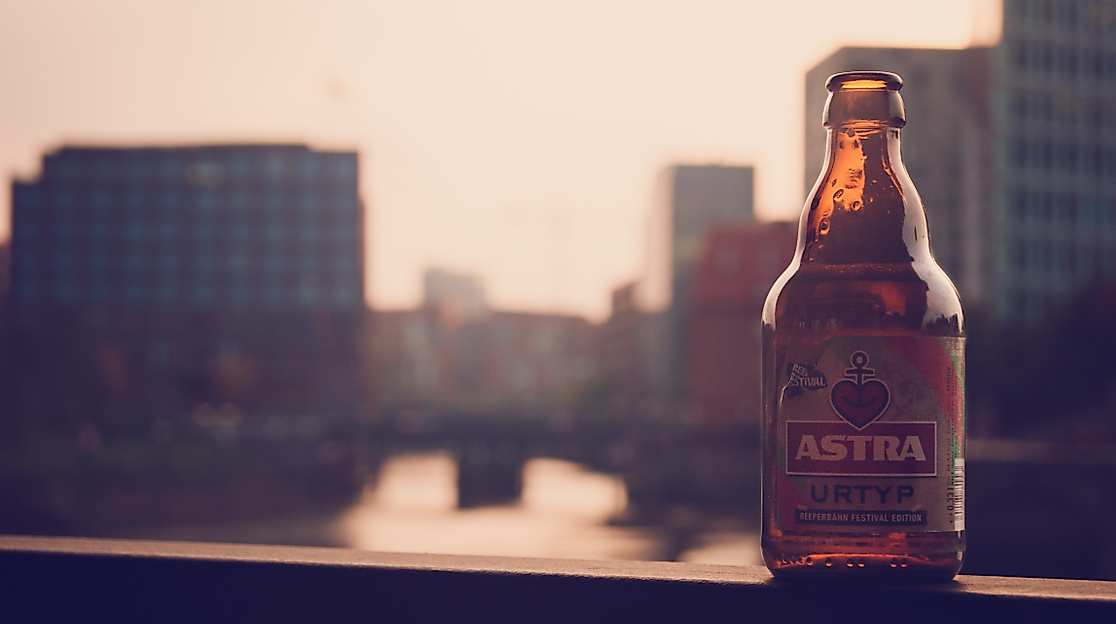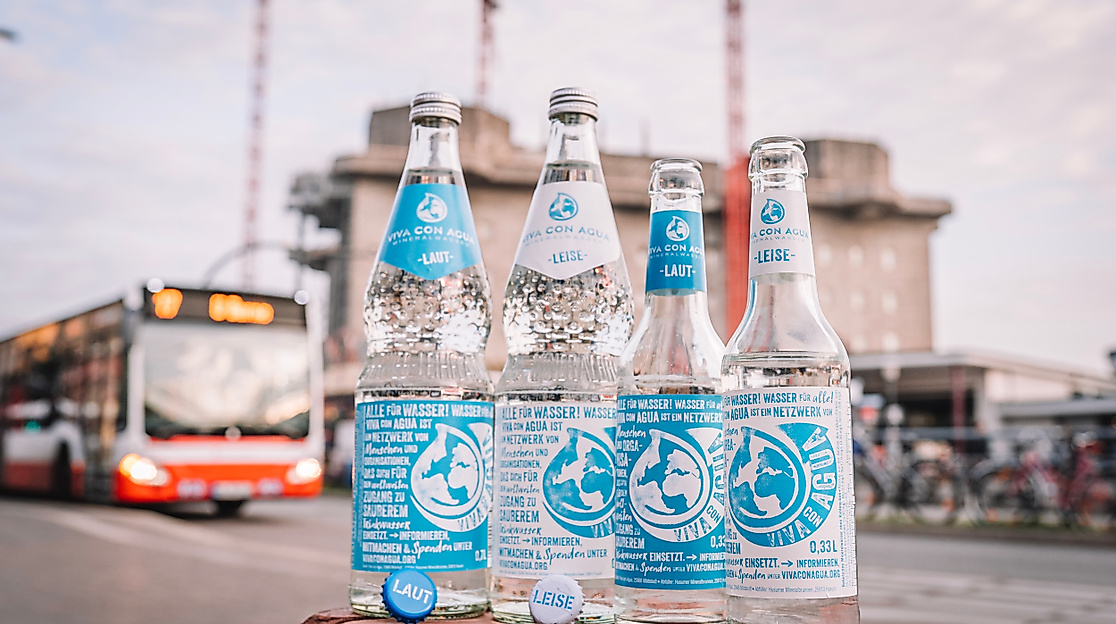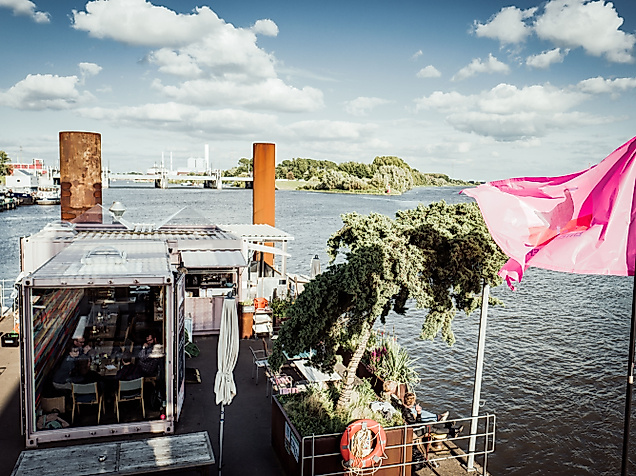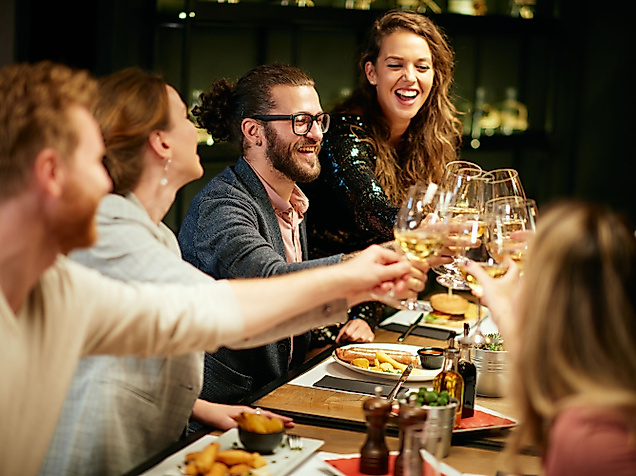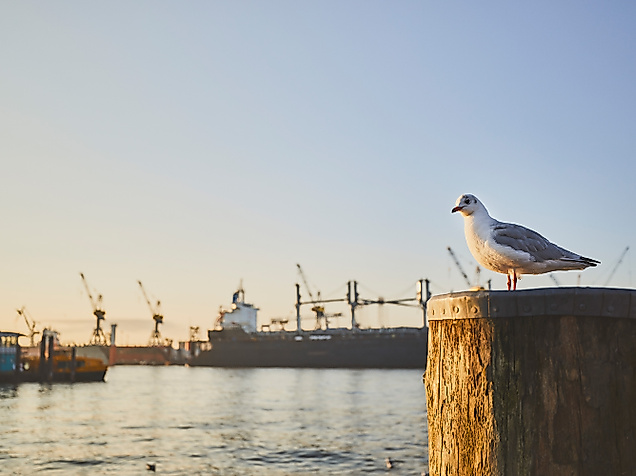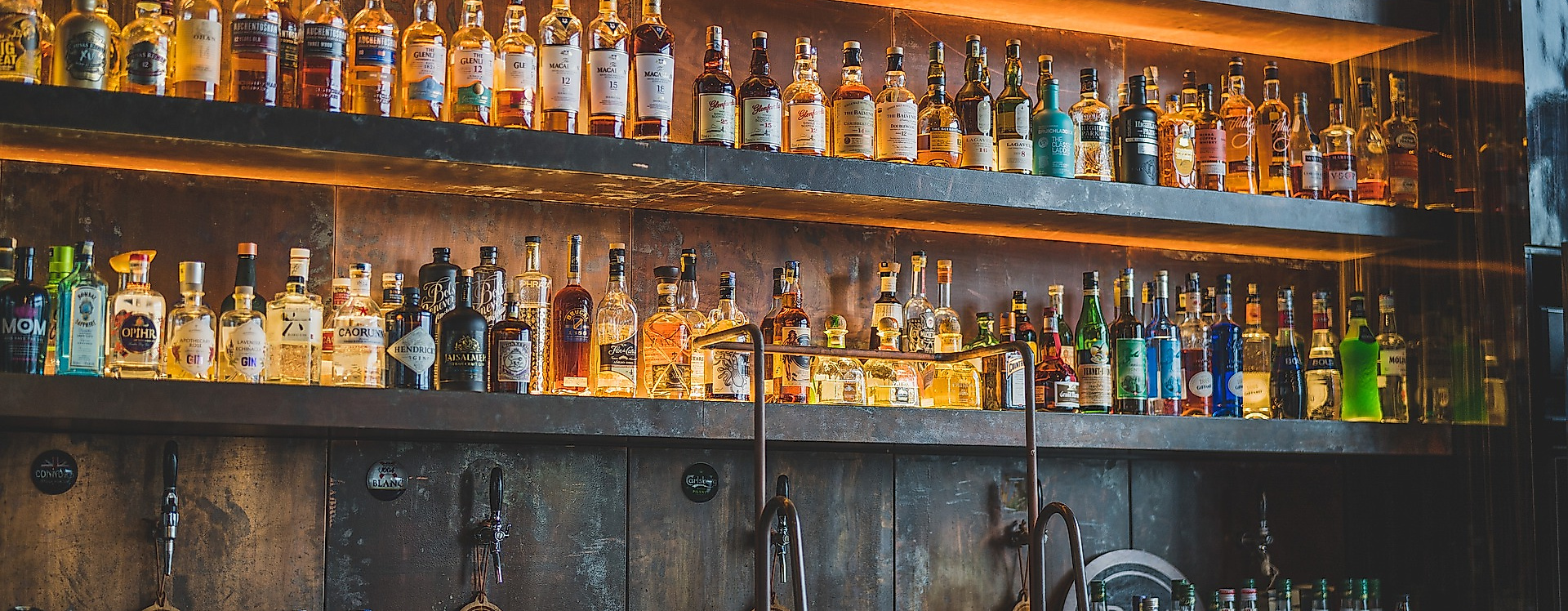

Original Drinks from Hamburg
Authentic Hamburg beverages
Did you know? These originals are made in Hamburg
Hamburg is and remains a popular place for start-ups and smaller companies that are still at the beginning of their development and are looking for loyal customers in a maritime environment.
Not only the diversity of the city, but also the openness and the drinking habits of the Hanseatic citizens make the greater Hamburg area a popular location. In this article, we will introduce you to genuine Hamburg beverages (both alcoholic and non-alcoholic) that are made in Hamburg.
Spirits made in Hamburg
The Hanseatic city has a lot to offer in the way of high-proof spirits. For those who find it difficult to find their way around the Hanseatic drinking culture, we offer an overview of the three classic spirits that come from Hamburg and are distilled with love.
Gin Sul: A piece of the south finds its completion in the north
Altona: In the spirits manufactory in Hamburg-Altona, Gin Sul, a true Hamburg original, is distilled with love and selected botanicals. The finished gin is bottled in the typical white clay bottles. To create a characteristic look, the bottles are made of stoneware, then glazed and printed in the last move with the help of screens. The gin Sul is mild in taste, with a fresh note of lemon and spicy elements that come from rosemary, cinnamon and more.
Helbing Kümmel: The most popular beyond Hamburg's borders
Bahrenfeld: A recipe that has been kept secret to this day and two founders who established a spirits business in 1836 that has endured to this day. For over 180 years, the Hanseatic art of distilling, a unique recipe and ingredients such as caraway seeds and the purest grain alcohol with a high quality level have been on the agenda of the "Helbing Kümmel" brand. The caraway can be tasted on all occasions, is well received by one of the oldest spices and medicinal plants, the caraway, both in gastronomy (before and after meals) and as a round drink.
Hambuca: An incomparable combination of star anise and maple syrup
Hamburg's center: Here, the love of spices, primarily the fascination of anise, is turned into a taste experience. To ensure that the Hambuca remains a real taste experience, the natural ingredients are matured in alcohol to then develop their aromas. The maple syrup finally makes the combination perfect and brings the Hambuca not only its characteristic color, but also the taste reminiscent of caramel. The liqueur can be used to prepare a wide variety of drinks - with fresh fruit juices or as a tangy drink at the end of the day.
Beer made in Hamburg
With over 1,000 years of beer history, Hamburg has the oldest brewing tradition in Germany. Between the 13th and 15th centuries, the Hanseatic city produced the most quantities of beer far and wide. To this day, Hamburg is home to a number of breweries, as beer has recently become popular again on every corner of the city. Astra, Holsten and Ratsherren are known to many. But ever heard of Buddelship?
Astra and Holsten: If the taste of beer also says something about your interest in soccer
Not only the Astra, but also the Holsten each stand for two well-known soccer clubs. While Astra is drunk in St. Pauli, Holsten is particularly popular with all those interested in HSV soccer. Even though they are rivals in soccer - the brands belong together and are produced under one roof.
As a German beer brand, Astra has belonged to Holsten Brewery since 1998. Before that, the beer was initially brewed by the Bavaria brewery in the town of Altona, which was founded in 1897 and also bore the name "Bavaria" until 1909. However, the Holsten brewery's new home is no longer Altona, but Hausbruch near Harburg, in the south of the Hanseatic city. Holsten will, however, retain its old home in Altona: various areas of the brand (including, among others, administration, marketing, sales, and the human resources and finance departments) will continue to operate in the district. New office buildings have been constructed for this purpose, which also integrate former structural features such as the Holsten knight including tower.
Ratsherren: The popular brewery in Hamburg's trendy "Sternschanze" district
The brewery in Hamburg's trendy "Sternschanze" district has been in existence since 2012. Belonging to the Nordmann group of companies since 2005, the brand has gone through several takeovers. Originally, the beer specialties were created in the Elbschloss brewery. After several takeovers, including from Bavaria-St-Pauli-Brauerei as well as Holsten-Brauerei, the brewery now brews in the listed Schanzenhöfe.
The assortment includes a wide range of beer specialties. However, the craft beer is particularly special. With a lot of passion and imagination, the brewery creates extraordinary craft beers, which are created by special types of malt, rare types of yeast and different amounts of hops. The different amounts of hops are often added at cold temperatures - result: the flavors develop much better. There is currently a special Craft Beer Store in Hamburg. And Ratsherren also offers guided tours in the Schanzenhöfe.
Buddelship: A small brewery in the district of Hamburg-Eimsbüttel
The small brewery in Hamburg's Eimsbüttel district has only been selling its craft beer since 2014. All those involved place a particularly high value on closeness to nature, a high degree of craft brewing art, and natural ingredients. Having already faced some difficulties, not least from the Corona pandemic, the young brewery always keeps its origins in mind when producing unique beer varieties: so despite ups and downs, they create traditional beer styles, including Pilsner, Schwarzbier and Bockbier, in new interpretations. What always remains important: leaving the beer as it is - unfiltered, lively and fresh.
Wildwuchs: The Organic Brewery in Hamburg-Wilhelmsburg
Wildwuchs Brauwerk is at home in Hamburg-Wilhelmsburg and is the first organic brewery in Hamburg. It all started in 2014 in a leased brewery in Bleckede, and four years later Wildwuchs Brauwerk moved into its own brewery in Hamburg-Wilhelmsburg. Wildwuchs places particular emphasis on the quality of raw materials and regionality; only ingredients from controlled organic cultivation are used and partner farms are visited regularly to ensure the quality of the products sourced. The beer is produced from the beginning to the bottle directly in Wilhelmsburg, thus unnecessary production routes are avoided. The beers of Wildwuchs are brewed erfrischedn unkenventionell and thus get a completely original flavor variety. Here you will also find one or the other rather unusual beer such as Frau Knolle Helles with ginger, the Wild Holle with a touch of elderflower or the Wachmoker Coffee Ale. In addition to the in-house beers, you can also take part in brewing courses, brewery tours and tastings and learn a lot about the brewing process, the brewery and the beers.
Non-alcoholic beverages made in Hamburg
If you're not a fan of spirits or beer, you can't miss the following Hamburg treasures. If you come across ChariTea & Lemonaid, Fritz Kola or Viva con Agua, you will also come across socially committed and sustainable companies that are launching innovative ideas and concepts.
ChariTea & Lemonaid
Originally a juice store from St. Pauli, today a role model for fair trade and social change. The drinks are completely free of additives, enriched with organic ingredients, and every purchase supports fair trade. Although you pay more for a ChariTea & Lemonaid lemonade than for other refreshing drinks, you are also doing something good around the world. In addition to transparent supply chains and humane, fair working conditions (especially in agriculture), 5 cents per bottle sold has been sponsored since 2010, which goes to various development aid projects. So a sip of the lemonades and juices is not only refreshingly delicious, but also refreshingly helpful!
Fritz Kola
Two friends, one idea: a better Kola was needed. All beginnings are difficult, but the two founders of the Fritz-Kola brand quickly established themselves on the market - and not just in Hamburg. Already after their two-year existence in 2004, they laid the first milestone and expanded their range, which initially consisted only of the better Kola, to include various spritzers and fizzy drinks. Finally, in 2011, the sustainability project is initiated: all artificial flavors and colorings are banned from the range. What remains today is a cross-company culture that revolves around themes of sustainability, reusability, and naturalness.
Viva con Agua
Often heard, but little known about - Viva con Agua is a non-profit organization with central headquarters in Hamburg-St. Pauli. With a lot of activism and joy, the organization is committed to water, sanitation and hygiene projects around the world. The loud and quiet water should therefore not be underestimated. While quenching your thirst, the water not only draws attention to the charitable action, but also generates funds for the charitable work at the same time. If you want to help out and contribute to global water accessibility, you can find the mineral water in almost any specialty beverage store or supermarket retailer.
Search
Languages
Google translator for other languages
Please note that this is an automatic translation.
For better information, you can always switch to the German or English version
